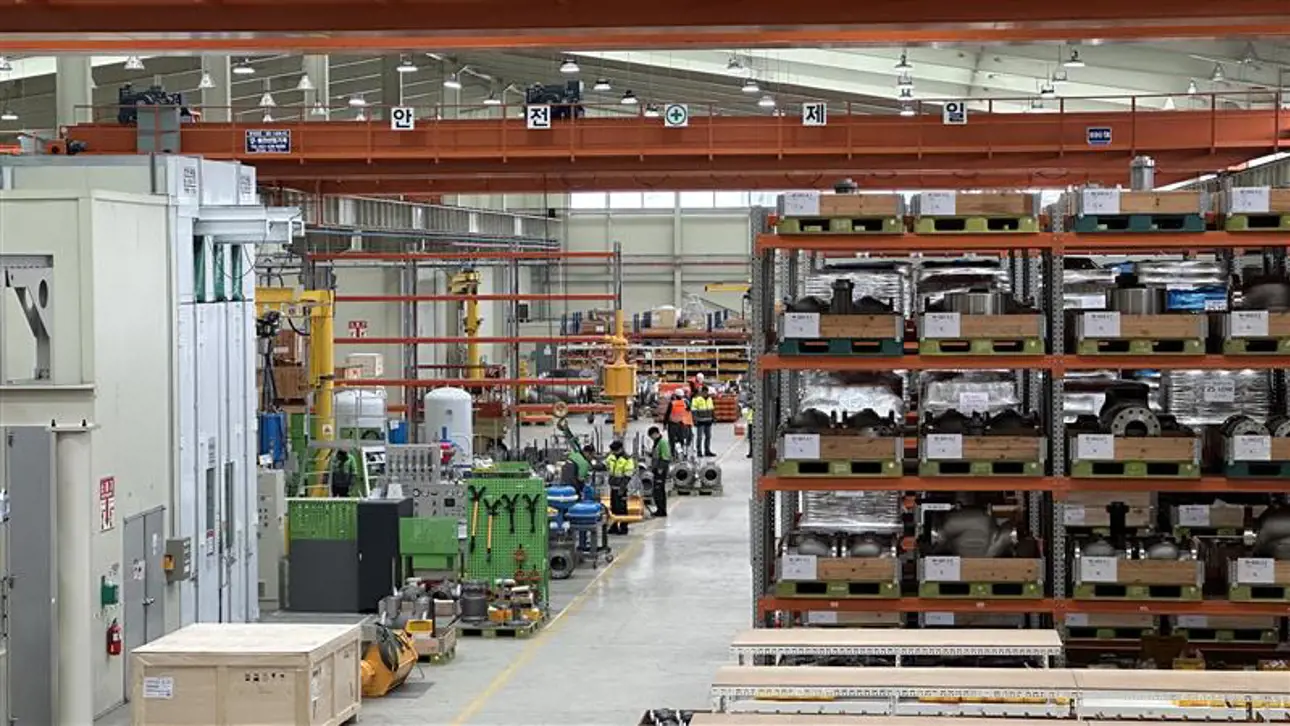Valmet leads the smart transformation of South Korea’s flow control industry

Addressing customers’ needs with reliability, safety, and maintenance
Valmet’s Flow Control business line (hereinafter referred to as Valmet), headquartered in Finland, has been a leading company in the flow control industry with nearly 70 years of experience in the valve business.
During his recent visit to South Korea, Henri Huovinen, Head of Valmet’s Flow Control business in Asia-Pacific, expressed his commitment to achieving meaningful results in the South Korean market by leveraging the company’s core product brand, Neles, in the project business.
Decades of experience, providing continuous customer support and maintenance
According to Henri Huovinen, Valmet’s Flow Control business line was previously operated as an independent company, Neles, before becoming a part of Valmet Group two years ago. Today, Valmet is recognized as a leading provider of flow control solutions in various process industries worldwide. Henri Huovinen explained, “Our major industries include:
a. Pulp & paper
b. Refining & chemicals
c. Renewable energy & gas
d. Mining & metals
Among these, refining & chemicals holds the largest market share, followed by pulp & paper. Additionally, the renewable energy & gas and mining & metals sectors are considered emerging industries with high growth potential.”
According to Huovinen, a significant portion of Valmet’s flow control business is centered around OPEX (Operating Expense), focusing on continuous customer support and maintenance after valve delivery. The company also operates in the valve control device and actuator business, alongside project-based operations.
Trust, safety, and maintenance
Discussing the South Korean market, Henri Huovinen stated, “Many customers in South Korea tend to have a relatively conservative approach, but trust, safety, and maintenance are extremely important factors for them. These aspects are key values not only for our customers but also for Valmet in developing and delivering our products.”
He emphasized that even as market trends evolve, these elements will continue to play a crucial role. “We are not just providing products but also offering comprehensive services alongside them.”
Regarding recent market trends, he observed:
- Digitalization and sustainability are driving the latest developments.
- Customers are upgrading existing assets with smart devices and technology, actively utilizing data to improve operations.
- These trends are not only shaping our customers’ businesses but also significantly impacting our services and products.
From his Asia-Pacific perspective, Henri Huovinen believes that South Korea will remain a key player in the project business, as it has been for a long time. “Valmet has established strong relationships with major customers in South Korea. Providing the best service in future projects is essential, and we are committed to supporting upcoming investment projects while enhancing our local customer management capabilities to provide faster and more efficient support.”
He also emphasized the importance of a localized approach:
- A strong local team is necessary to address customer-specific modifications and support initiatives related to sustainability and digitalization.
- While Valmet develops products based on customer feedback, having local expertise ensures even better service.
Asia’s volatile market and the future of sustainability
Looking at the broader Asian market, Henri Huovinen shared his insights:
- High market volatility is a key trend in Asia.
- Certain industries are facing oversupply challenges.
He elaborated, “Particularly in the refining and chemical industries, some customers are struggling to balance supply and demand. However, there are always solutions, and many customers are making their assets more flexible to adapt to market changes. Valmet is actively supporting these customers in this transition.”
Through its flow control offering and know-how, Valmet helps customers manage these changes effectively, ensuring:
- Optimal asset utilization for maximum productivity
- Maintaining safety and reliability
Additionally, sustainability is a critical focus across all industries, and Henri Huovinen closely monitors Asia’s evolving landscape in this area.
For instance:
- Sustainable Aviation Fuel (SAF) is gaining attention among refining and chemical industry customers.
- Renewable energy projects previously saw rapid growth, and interest in their future direction remains strong.
He pointed out that while some large-scale green hydrogen and carbon capture projects have been delayed, specific projects related to SAF and carbon capture are still progressing. In conclusion, Henri Huovinen stated, “The energy transition is underway, but the pace of progress remains uncertain at this stage.”
Text: Jinsung Kim, The Korea Industry Daily.
The original article was published in The Korea Industry Daily on March 17, 2025.